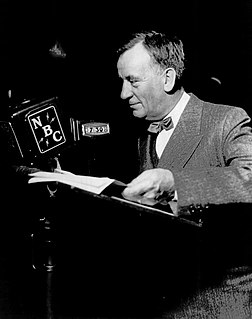A Quote by Thomas Aquinas
To restore man, who had been laid low by sin, to the heights of divine glory, the Word of the eternal Father, though containing all things within His immensity, willed to become small. This He did not by putting aside His greatness but by taking to Himself our littleness.
Related Quotes
Immediately upon the fall, the mind of man shrank from its primitive greatness and expandedness, to an exceeding smallness and contractedness... Before, his soul was under the government of the noble principles of divine love, whereby it was enlarged to the comprehensiveness of all his fellow creatures and their welfare... [But] sin, like some powerful astringent, contracted his soul to the very small dimensions of selfishness, and God was forsaken, and man retired within himself, and became totally governed by narrow and selfish principles and feelings.
Jesus Christ, who had all the power in the world, saw us enslaved by the very things we thought would free us ... He laid aside the infinities and immensities of His being and, at the cost of His life, paid the debt for our sins, purchasing us the only place our hearts can rest, in His Father's house. Knowing He did this will transform us from the inside out.
Though we cannot understand "the meaning of all things," we do "know that God loveth his children" because He has said, "Behold, this is my work and my glory-to bring to pass the immortality and eternal life of man." Heavenly Father is able to accomplish these two great goals-the immortality and eternal life of man-because He is a God of creation and compassion. Creating and being compassionate are two objectives that contribute to our Heavenly Father's perfect happiness. Creating and being compassionate are two activities that we as His spirit children can and should emulate.
The man who has given himself to his country loves it better; the man who has fought for his friend honors him more; the man who has labored for his community values more highly the interests he has sought to conserve; the man who has wrought and planned and endured for the accomplishment of God's plan in the world sees the greatness of it, the divinity and glory of it, and is himself more perfectly assimilated to it.
For I have shown from the Scriptures, that no one of the sons of Adam is as to everything, and absolutely, called God, or named Lord. But that He is Himself in His own right, beyond all men who ever lived, God, and Lord, and King Eternal, and the Incarnate Word, proclaimed by all the prophets, the apostles, and by the Spirit Himself, may be seen by all who have attained to even a small portion of the truth. Now the Scriptures would not have testified these things of Him, if, like others, He had been a mere man.
Who does his task from day to day and meets whatever comes his way, Believing God has willed it so, has found real greatness here below. Who guards his post, no matter where, believing God must need him there, Although but lowly toil it be, has risen to nobility. For great and low there's just one test, 'tis that each man shall do his best, Who works with all the strength he can, shall never die in debt to man.
Christianity exhorted man to set himself up against Nature, but did so in the name of his spiritual and disinterested attributes. Pragmatism exhorts him to do so in the name of his practical attributes. Formerly man was divine because he had been able to acquire the concept of justice, the idea of law, the sense of God; today he is divine because he has been able to create equipment which makes him the master of matter.




































